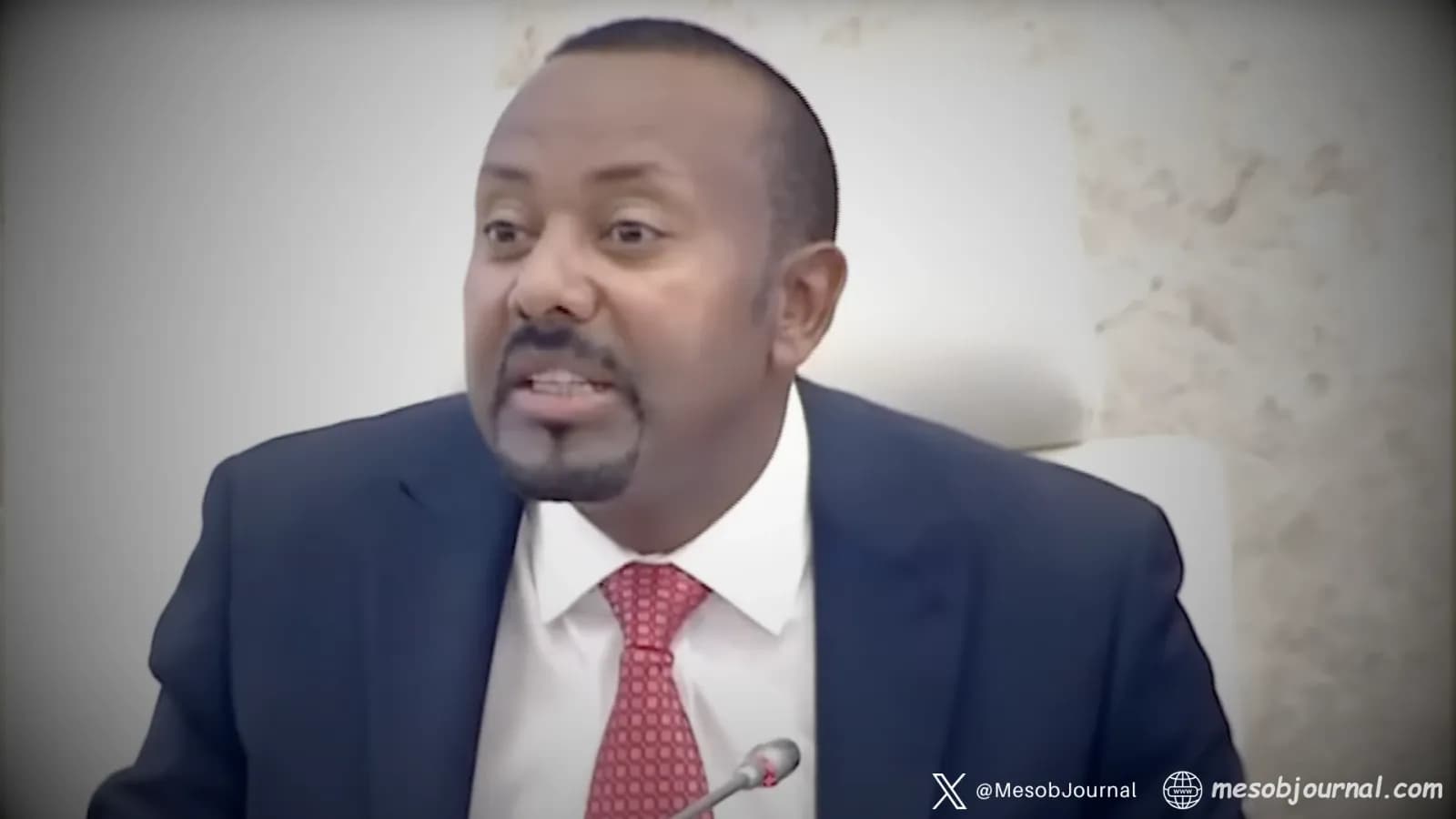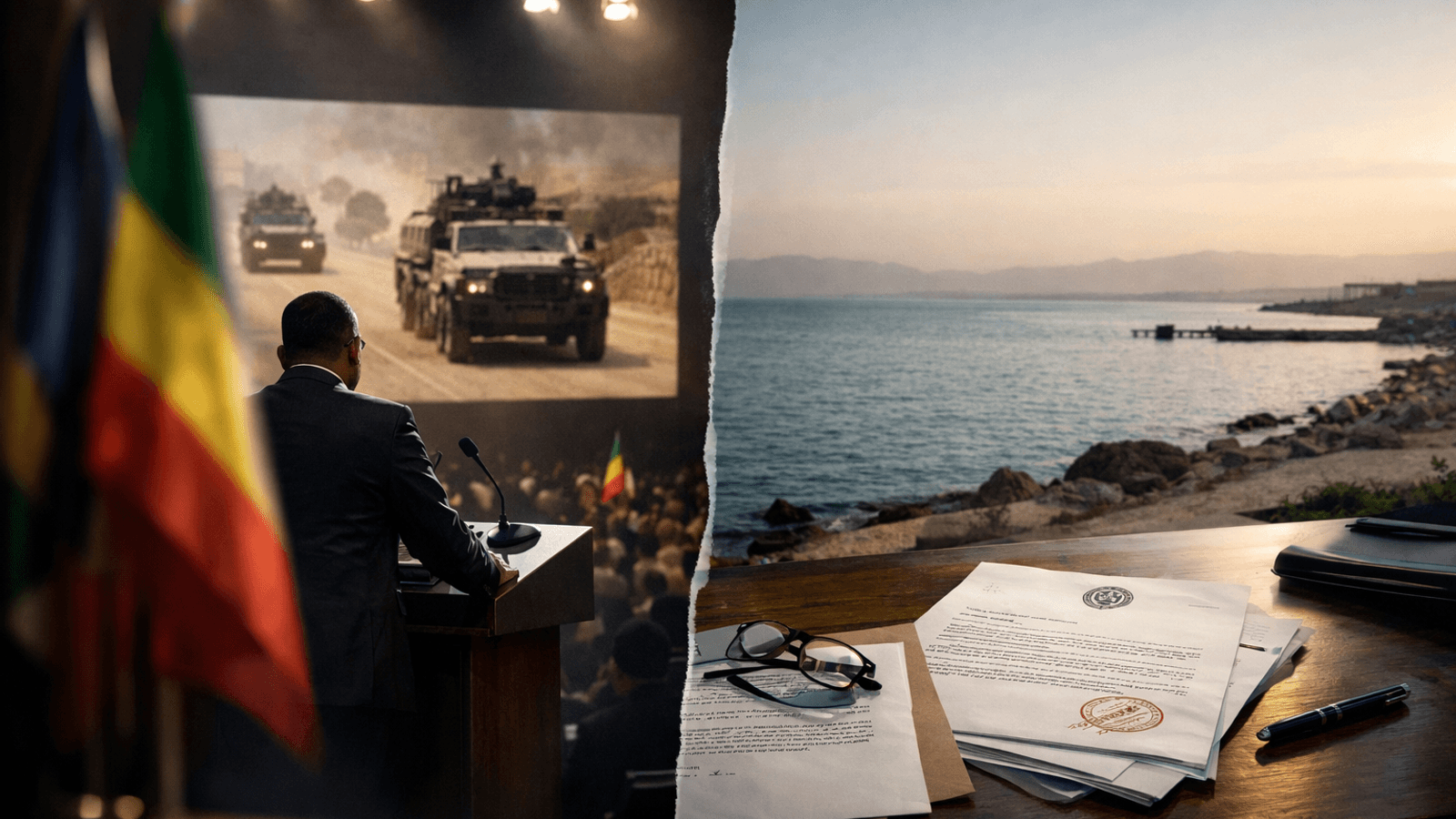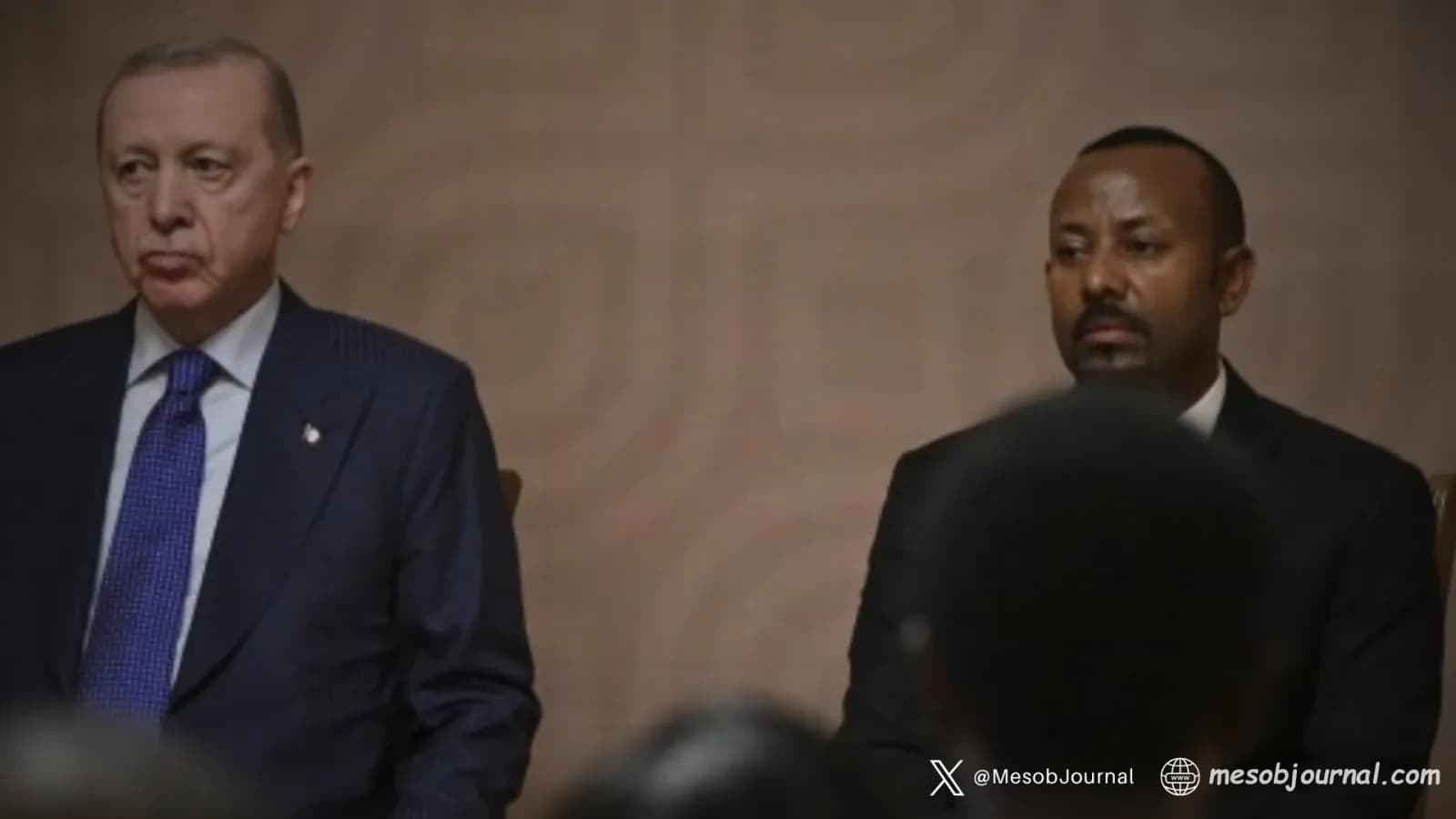Abiy’s Parliament Show — Big Rhetoric, Bigger Questions, No Logic

Why “Who decided?” exposes the poverty of Ethiopia’s Red Sea narrative
When Prime Minister Abiy Ahmed addressed Ethiopia’s parliament on October 28, 2025, his speech was less a policy statement and more a performance — part sermon, part threat. He spoke of peace, then hinted at war. He praised patience, then promised that Ethiopia wouldn’t “wait 30 years to take it [Asab] back.” The contradiction was not lost on anyone watching.
But beyond the theatrics lay a more serious problem: an open attempt to rewrite history, dressed up as a question. “Who decided Ethiopia lost the Red Sea?” Abiy asked. The implication was clear — that Eritrea’s independence, and by extension its sovereignty over its ports, was somehow the result of a missing signature or an overlooked cabinet decision.
It wasn’t. And the record is not up for revision.
Eritrea didn’t “take” land — it reclaimed it
Eritrea’s independence was not a gift from anyone, nor the product of an Ethiopian bureaucratic decision. It was the outcome of a 30-year armed struggle — one of the longest and most disciplined liberation movements in modern African history.
After World War II, the United States engineered a federation that bound Eritrea to Ethiopia in 1952, despite clear opposition from the Eritrean people. A decade later, Ethiopia illegally annexed Eritrea by force — abolishing its parliament, banning its flag, and occupying its land. What followed was a generation of war. Eritreans eventually defeated the occupier and restored their sovereignty in 1991. Two years later, they held a UN-supervised referendum where 99.8% voted for independence — a result recognised by the international community, including the United Nations and the Organization of African Unity.
So when Abiy asks “who decided?” — the answer is simple: the Eritrean people decided. Through sacrifice, not paperwork.
No one has blocked Ethiopia’s access to the sea
We’ve said this before on Mesob Journal, and we’ll say it again — because the noise keeps returning.
Abiy’s repeated call for “international mediation” to secure access to the Red Sea is equally misplaced. Ethiopia already enjoys unimpeded commercial access to regional ports — primarily Djibouti, which handles over 90% of its imports and exports. No country, including Eritrea, has ever denied Ethiopia’s right to trade.
What Addis Ababa now demands is not access but ownership. That is a completely different matter — one that violates international law, the African Union’s founding principles, and the territorial integrity of a sovereign state.
There is no “existential crisis” to solve here. There is only a political narrative being inflated to justify distraction and dominance.
Africa’s red line: borders are inviolable
Eritrea’s sovereignty and territorial integrity are protected not just by its independence, but by the 1963 OAU resolution that established the principle of respecting colonial borders. That principle — reaffirmed in the Constitutive Act of the African Union — is what has spared Africa from endless border wars.
Any attempt by Ethiopia’s current leadership to claim Eritrean land or ports such as Assab or Massawa is therefore not only historically false, but a direct violation of African and international law.
The double language of peace and threat
Throughout his speech, Abiy alternated between peace appeals and veiled threats — a style that has become his trademark. He warned that “the result is clear if war starts,” accused Eritrea of “smuggling weapons,” and mocked those who challenged his “sea access” rhetoric.
This double language — the soft tone of mediation coupled with the posture of menace — is not diplomacy. It’s coercion through ambiguity. And it serves only to destabilize an already fragile region.
A settled truth
Eritrea’s sovereignty is not a discussion point. It is a settled, irreversible fact — earned in blood, recognised in law, and defended with resolve.
The Red Sea is open for trade, but closed to imperial nostalgia.
Peaceful coexistence will come not through threats or revisionism, but through respect — the kind that recognises the past as final.
Related stories

The “Powder Keg” Script: Crisis Group’s Eritrea Bias
International Crisis Group’s 18 February 2026 briefing advertises itself as conflict prevention. In reality, it performs something closer to narrative management: it repackages Ethiopia’s Red Sea ambition as a “grievance” to be accommodated, while keeping Eritrea boxed into the f

Ethiopia: Abiy's War Script and the Media’s False Balance on Eritrea
The lazy framing is already being warmed up: “tensions are rising,” “neighbours trade claims,” “both sides must de-escalate.” It sounds responsible. It reads balanced. And it quietly deletes the one fact that matters: one side has spent years normalising war talk as policy. If y

Erdogan in Addis: sovereignty first as Abiy beats sea-access drum
Abiy Ahmed tried to stage the usual Addis photo-op when Turkey’s President Recep Tayyip Erdoğan arrived. But the camera caught something different: a stiff, guarded prime minister sitting beside a visitor who didn’t look like he came for flattery. What played out at the joint app

Eritrea Dismisses Ethiopia’s Letter, Cites Two-Year Hostile Campaign
Eritrea’s Ministry of Information has dismissed Ethiopia’s latest diplomatic message as “patently false and fabricated,” rejecting what it described as a familiar two-year pattern of hostile campaigns — and pointedly refusing to be pulled into public escalation. In a short press

